Discover McGill’s Food Ecosystem!
“Over the years there were a number of food service operations run by student groups and they have all been phased out, and that’s a strategic decision that the University has taken on this issue.”
Morton Mendelson, former Deputy Provost of Student Life and Learning in an interview with the Daily, August 2007
Read about the different food advocacy groups, student-run cafes, and other food-related initiatives at McGill in both the past and the present. To understand how these stakeholders all interact, take a look at our mind map!
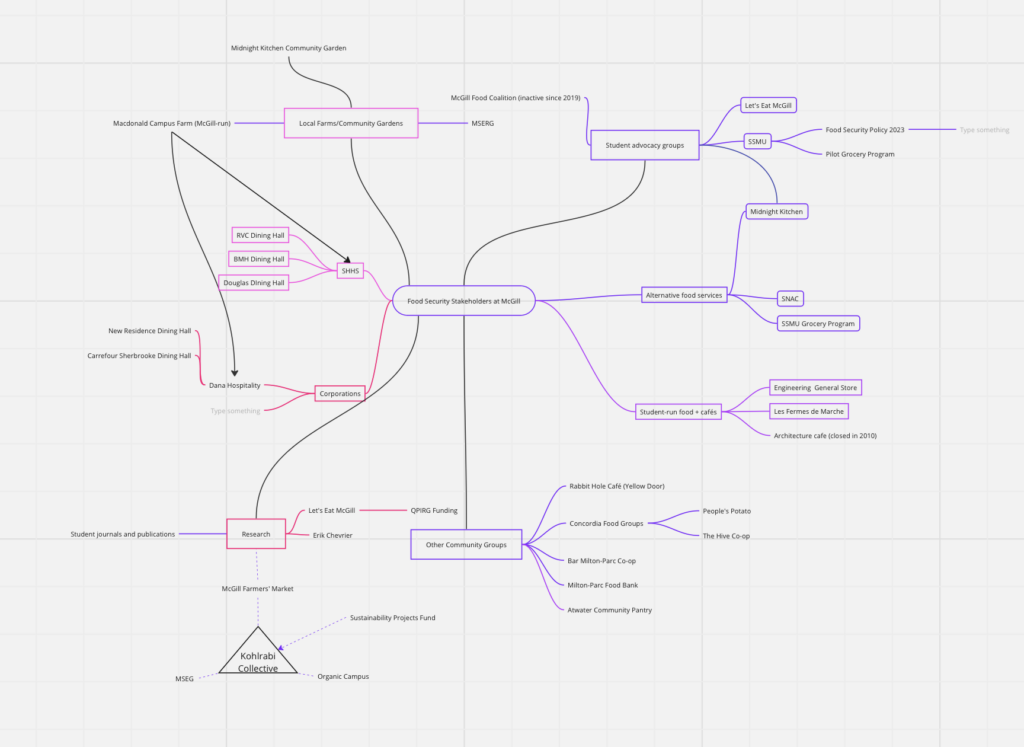
Midnight Kitchen
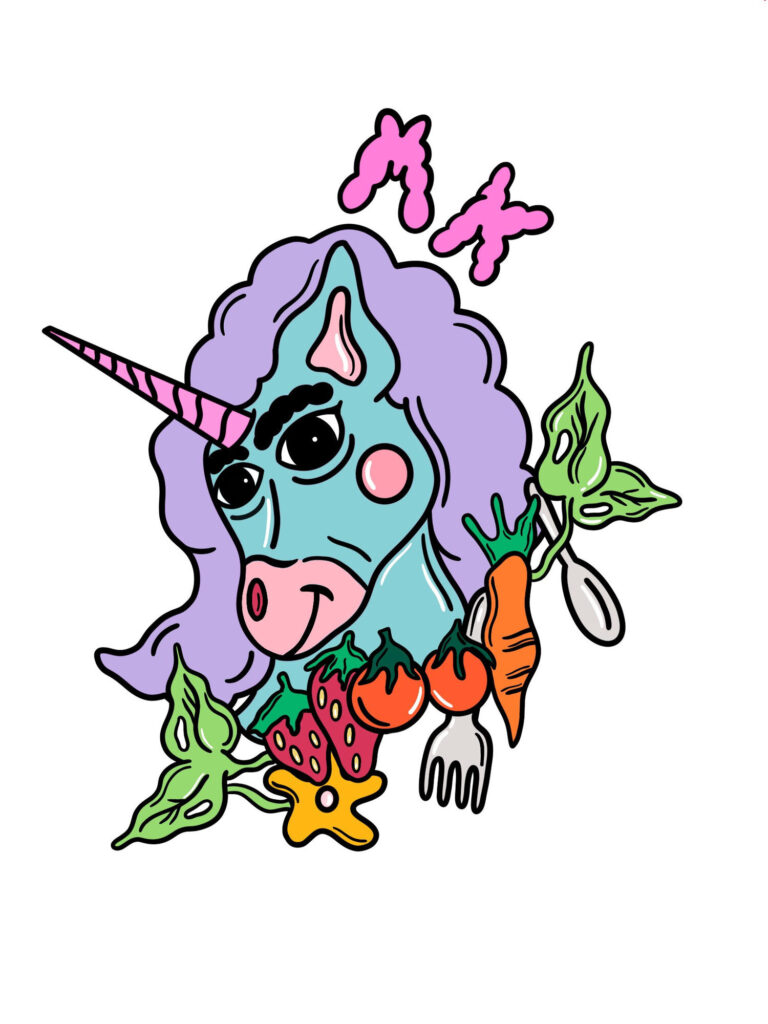
Midnight Kitchen is a non-profit worker and volunteer-run collective dedicated to increasing food accessibility on McGill campus and beyond. They provide free lunch programs, offer solidarity servings, discretionary funding, and educational workshops centred around food. They also run a garden where they grow herbs, vegetables, fruits, and flowers.
MK operates as a SSMU service and receives their funding from a fee levy administered through SSMU. They emerged in 2002, with many of the founders being part of the food committee of the GrassRoots Association for Student Power, a network of McGill student activists involved in anti-globalization organizing. They began to serve food on a regular basis “as a way to resist and create an alternative to the Chartwell corporation’s attempts to monopolize the distribution of food on the McGill University campus.”
McGill Farmers’ Market
The McGill Farmers’ Market is a weekly gathering spot for students, faculty, and community members to discover local foods. The idea for the Farmers’ Market was conceptualized in 2008, and the first market was held in fall 2009. They also organize local and seasonal produce baskets throughout the summer and fall. In addition, they have a long-standing partnership with MacDonald Campus. They pay particular attention to sourcing food that is healthy, affordable, and sustainably produced.
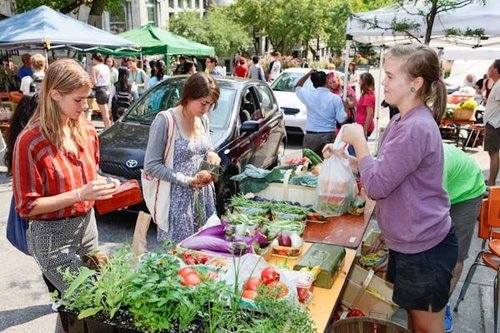
Student Nutrition Accessibility Club (SNAC)
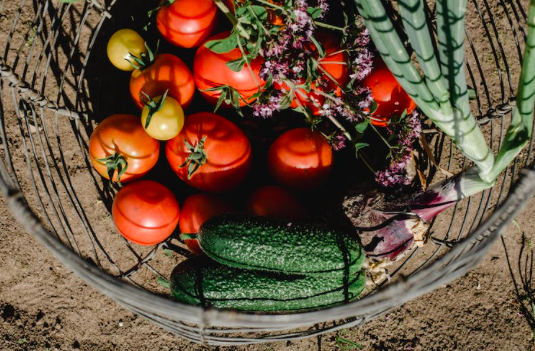
SNAC is a full-status SSMU service with the goal of expanding the scope of its mission to provide nutritious, affordable, local food to the McGill community in a sustainable manner. SNAC was founded in 2011 to provide nutrition workshops to underserved communities such as the Native Women’s Shelter. Reacting to the high cost of food and inaccessibility of healthy eating on campus, offers a Good Food Box program, produce distribution, workshops, and seeks to also provide free, nutritious alternatives. They offer produce that would otherwise be discarded from supermarkets as well as local Quebec produce.
SSMU Pilot Grocery Program
The SSMU Pilot Grocery Program is an initiative started in December 2022 that aims to address food insecurity on campus. This program provides vouchers and food items to SSMU members experiencing food insecurity who demonstrate financial need. The program is funded through a fee levy of $1/student passed in February 2023.
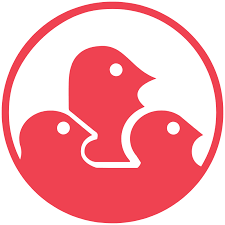
GrassRoots Association for Student Power
GRASP (GRASPé in French) was an autonomous, non-hierarchical group of McGill students founded in 2001 organizing to further radical social and political change both on and off campus. Several founders of Midnight Kitchen were involved in GRASP’s food committee. They were part of CAFS, and participated in their campaign against the monopolization of food services. In 2006, they proposed the idea for SSMU to hold general assemblies (GAs) every semester, and the first GA saw a motion pass which gave Midnight Kitchen full access and autonomy to their kitchen space in the SSMU building. In 2008, GRASP and Midnight Kitchen organized a boycott of Chartwells’s food services on campus to raise awareness about the ongoing corporatization of McGill’s food services and show the benefits of student-run alternatives.
On their website, GRASP has a very detailed account of their organizing activities between 2001 and 2007, which include organizing for free education, student-worker solidarity, anti-militarism, supporting the Six Nations and other Indigenous groups, and much more. They seem to have been inactive since 2010.
Coalition for Action on Food Services
CAFS was founded in 2004 when the McGill administration began to consider using a single provider for all of their food services. As part of their organizing, CAFS organized a press conference, collected 7500 petition signatures, and organized a boycott of food services run by Chartwells. This campaign succeeded in delaying the university’s search for a single provider. They also advocated for more student input in choosing a provider, and convinced the administration to create the Dining at McGill Advisory Committee. While the DMAC gave student representatives a channel to share their ideas with the administration, this committee ultimately had no power over their decisions. CAFS submitted a recommendation to DMAC which can be found here (page 45).
McGill Food Coalition
The McGill Food Coalition gathered individuals and organizations who aim to reduce profit-driven food structures on the university campus and re-instill social and environmental dimensions into the food system at McGill. It connected the entire university population, bridging between student food groups, staff, and students.
Kohlrabi Collective
Kohlrabi Collective was a research project organized by Matthew McCormick of the McGill Farmers’ Market and funded by the McGill Office of Sustainability in 2016. It aimed to analyze the interactions between the McGill Farmers’ Market, the MacDonald Student-Run Ecological Gardens, and Organic Campus. It also looked at how partnerships between these groups could help to overcome each group’s individual challenges. Read their final report here.
MacDonald Student-Run Ecological Gardens (MSEG)
Founded in 2009 as a student gardening club, MSEG is a vegetable farm located at Mac Campus which grows fresh produce and trains students to become farmers. They distribute their produce through weekly Community-Supported Agriculture (CSA) baskets, and sell it at markets in Montreal and Sainte-Anne-de-Bellevue. The club is structured so that members work for two growing sessions, first as an apprentice and then as a manager.
